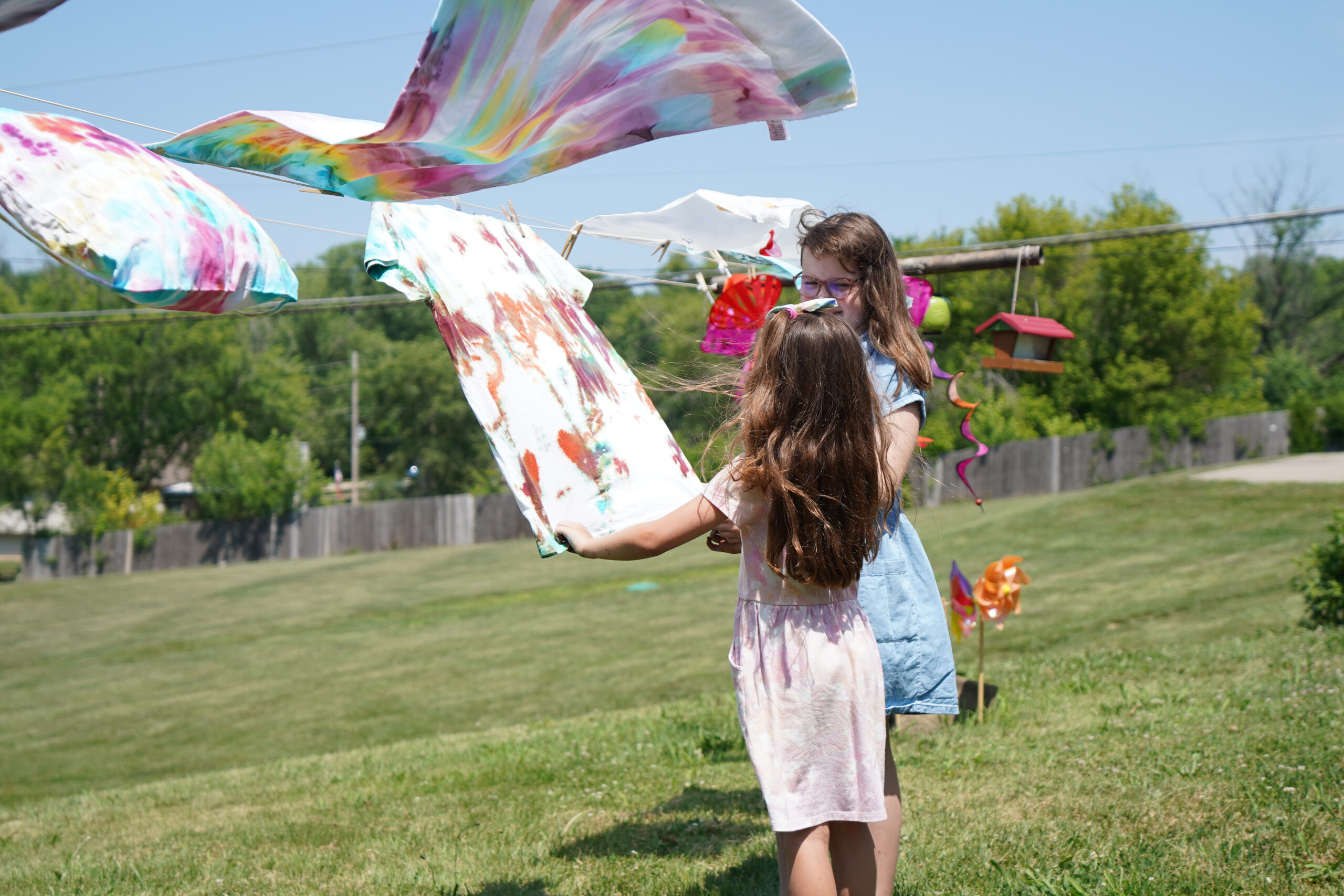
Grantee Spotlight
Caregivers on the Homefront’s mission was to support caregivers of United States veterans and first responders in Kansas City, Missouri, and beyond. Their goal was to instill hope, a sense of togetherness, and a firm foundation of resiliency. Founded by Shawn Moore, a former Kansas City police officer, the organization used art workshops and retreats to improve the well-being of military and veteran caregivers and their families. Caregivers on the Homefront* received a Creative Forces® Community Engagement Grant for their Art on the Homefront program in 2022-2023 and 2023-2024.
What follows are the personal stories of Shawn Moore and Michael Bowles.
Shawn founded Caregivers on the Homefront after falling in love with a veteran and becoming his full-time caregiver. The support group she created grew into a robust organization serving the large, overlooked population of military and veteran caregivers.
Michael Bowles had never known a role beyond caregiving. As the oldest of seven in a single-parent household, he had been one all his life. Michael later became a full-time caregiver to his veteran wife. Through Caregivers on the Homefront’s programs, Michael found the strength and restoration that came from centering himself, even for a moment.
Shawn and Michael’s stories convey the impact of Caregivers on the Homefront’s arts programs firsthand. They are stories of transformative change.
*Since receiving their Creative Forces Community Engagement Grants, Caregivers on the Homefront became part of the Elizabeth Dole Foundation.
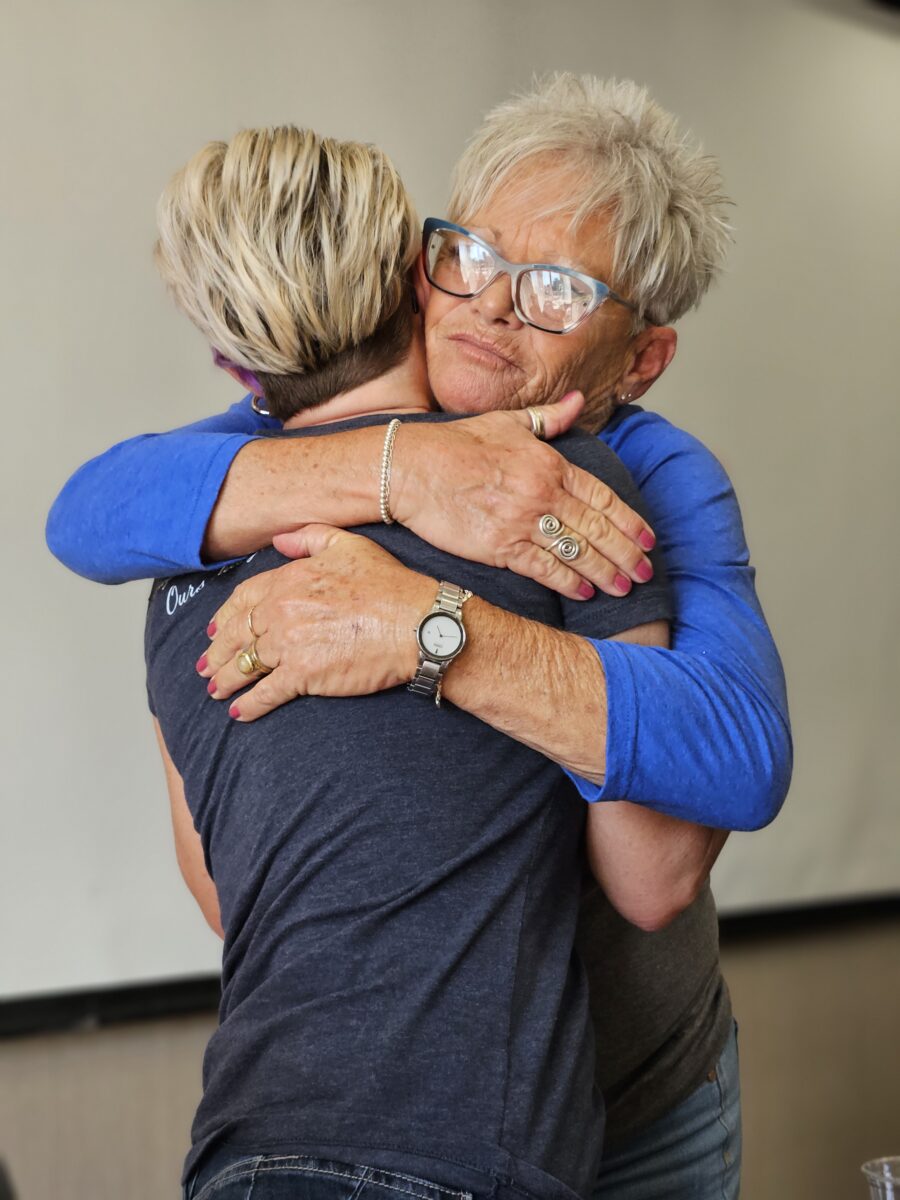
What I have learned in this short but seemingly long journey is that you cannot do this alone. A caregiver never knows what the day may bring. Having a sound support system gives you the courage and strength to keep moving forward. Even if it is one day at a time.
Shawn Moore, founding executive director, Caregivers on the Homefront
The Art of Care
Transcript
– I'm a caregiver for my wife. My wife served in the army. She got injured in basic training. She has a TBI and spinal cord injury. So, I get up about five o'clock in the morning. I get her medications, I get her breakfast, her coffee. Once she's set up, I go downstairs and I homeschool my daughter.
– I get woken up around two o'clock in the morning 'cause my husband does not sleep well. He suffered a TBI, a traumatic brain injury and he has short-term memory loss. By 6:30 I have to be up to get my daughter ready for school.
– If a service member is injured, you don't think, "Oh gosh, looks like I'm going to be a caregiver today." We take on this role of caregiving automatically. Oftentimes, unconsciously. We just care. Caregivers on the home front programs are based on the mental health and wellness of the family member. Those family members who oftentimes don't get to talk about what their feeling inside, those feelings may be situated around what's going on in the house because there's a wounded or ill or injured veteran. But because we're so in tune to caregiving, we don't get to talk about what is hurting us inside.
– Shawn and I both have an experience in being a veteran caregiver. We're able to relate to our caregivers that we work with and our participants and they know what we're going through and then we also have that professional piece as licensed master social workers. I feel like we build trust faster than most organizations or programs, because we do have that personal story behind us.
– Opening up with your art and explaining your feelings is a very vulnerable place. Not only do you have feelings about what you've created, the meanings behind it are sometimes even more intense and the arts can just allow that freedom with no judgment. When you put in in a group setting of like-minded people, you have others around you supporting you. There's a comradery and and you feed off of each other. That starts to create like a healing energy because you're sharing and you're vulnerable at the same time.
– Creative expression allows me to just take a a pause on everything that's going on around me. It actually relieve some stress because at that moment I'm just thinking about what I'm trying to create.
– There are 2.3 million military and veteran kids living in caregiving homes where there is care being provided to a veteran. These kids are taking on these caregiving roles at a very young age. The term that we use to describe these kids are hidden helpers. We oftentimes don't realize that these kids in the homes are becoming secondary caregivers. That's why bringing art for these kids is so important as well. A holistic approach to making sure our entire veteran family units are healing.
– There's just a lot of like what ifs and you don't really know what's gonna happen next. Is today gonna be a good day or is it gonna be like an anxious, stressful day?
– We did a tie dye project. We were making huge messes. The kids had dye all over their arms and clothes and hands and table, and one of the kids who she's 12 years old, I said, "Wow, what a mess." And she said, "Yeah, but life's messy." I was like, "Wow." She gets it.
– I made a pillowcase tie dye and mine was rainbow. And we like talked about like some stuff that described our art. I made a shirt and a pillowcase and I used like a whole bunch of colors, like blue and green and pink and red and orange.
– I like it and it's fun to talk to other kids and stuff and see art, and it made me feel happy.
– Resilience in the military space is a word we hear all the time, but I also think this word doesn't then allow us to be vulnerable. I think there's a balance that we have to find to make it okay to stand up and go, yes, "I know I'm a resilient military kid, but I've got a lot of stuff going on around me and I don't feel really resilient today." We need to make that okay. Veteran families are oftentimes not seen. We've got to make it easier for these family members to get the help they need. Healing is utilizing a piece of art to get out your true feelings, expression. Maybe even without saying a thing, we've gotta put it somewhere. Putting it down on a piece of canvas is a lot better than spewing angry words at maybe the cashier at the grocery store or your kids or your loved one that you're caring for. The most important thing for us as caregivers is to understand a caregiver. That's a role. It is not who we are. Caregiving is honorable and needed, yet they are so much more and that's what we wanna make sure that we're bringing back to them.
Accessibility Statement
Find our full Accessibility Statement in the footer.
Participant Spotlight
Shawn Moore
Shawn Moore, a former Kansas City police officer, founded Caregivers on the Homefront in 2017 after becoming a full-time caregiver to her husband Bryan, a disabled veteran who served 23 years in the U.S. Army with seven tours in Afghanistan. Although he had no visible wounds, Bryan lived with post-traumatic stress disorder (PTSD), major depressive disorder, and anxiety.
Being both a police officer and caregiver proved impossible for Shawn, as Bryan’s condition required constant caregiving. In 2019, she knew she needed to leave her six-year career with the Kansas City police department and pause her psychology degree to care for Bryan and keep him safe.
“Leaving the job was tough—it was a big part of who I was, and it felt like losing my independence,” Shawn explained. “But it was necessary.” The turning point came after Bryan attempted suicide. “The aftermath of someone you love attempting suicide means walking on eggshells every day,” she said. This experience showed her the unique challenges of caregiving for a veteran with invisible wounds.
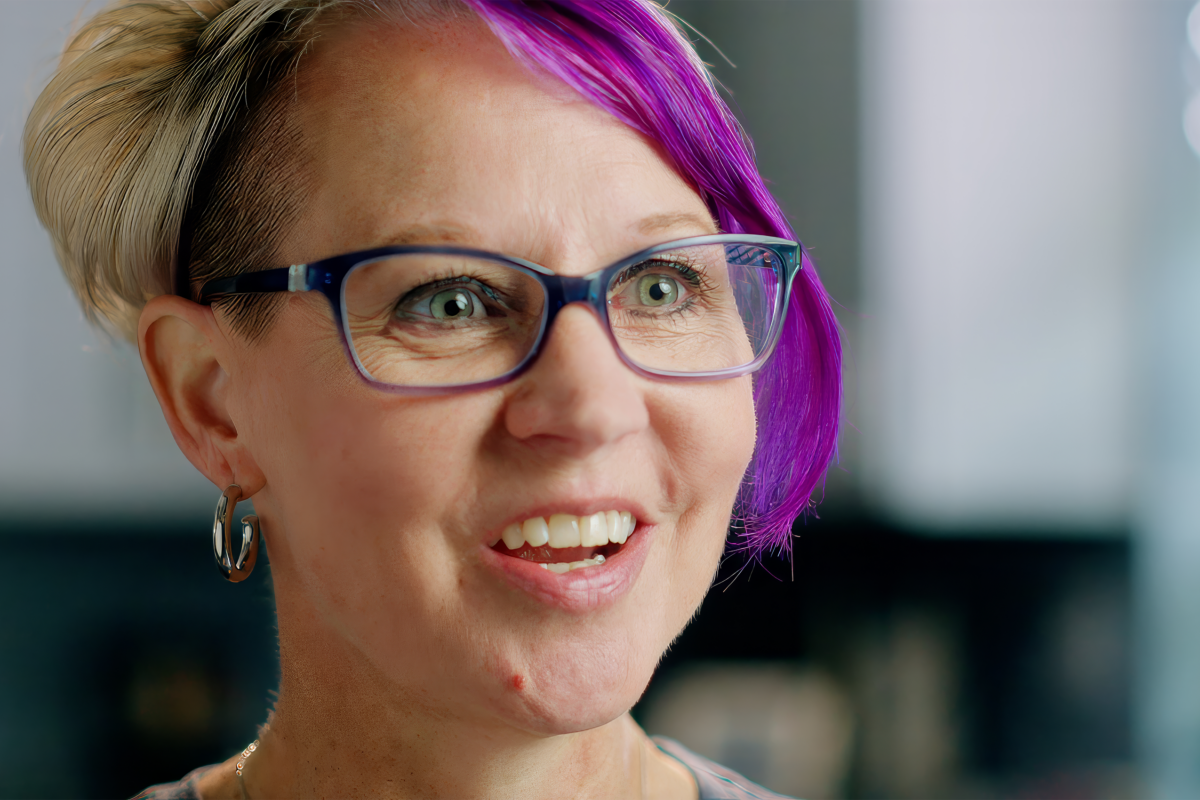
“I am not sure that caregiving will ever be easy all of the time, but it can be better when you find a tribe of like-minded individuals who understand what you are going through,” Shawn explained.
Through the programs she created at Caregivers on the Homefront, Shawn found solace, strength, and resiliency. She eventually became an Elizabeth Dole Fellow and finished a Master’s in Social Work. Shawn credited the resources she helped create through Caregivers on the Homefront for helping her on her journey. Through her program, she connected to healing and enriched many other veteran caregivers who often felt invisible and unsupported.
Michael Bowles
Michael Bowles was a 42-year-old caregiver and U.S. Army veteran living in San Antonio, Texas. He cared for his wife—a U.S. Army veteran with traumatic brain and spinal injuries—and their teenage daughter with learning disabilities. Michael didn’t know any other role. Even as a young child, he served as a caregiver. The role came naturally to him as the oldest of seven children in a single-parent household.
Michael grew up moving around frequently to different military bases. The oldest child of a teen mom, his parents divorced when his mother was only 19. Since his mother struggled with mental illness, Michael had to step into a caregiving role at a young age. By age six or seven, he was already caring for his younger siblings.
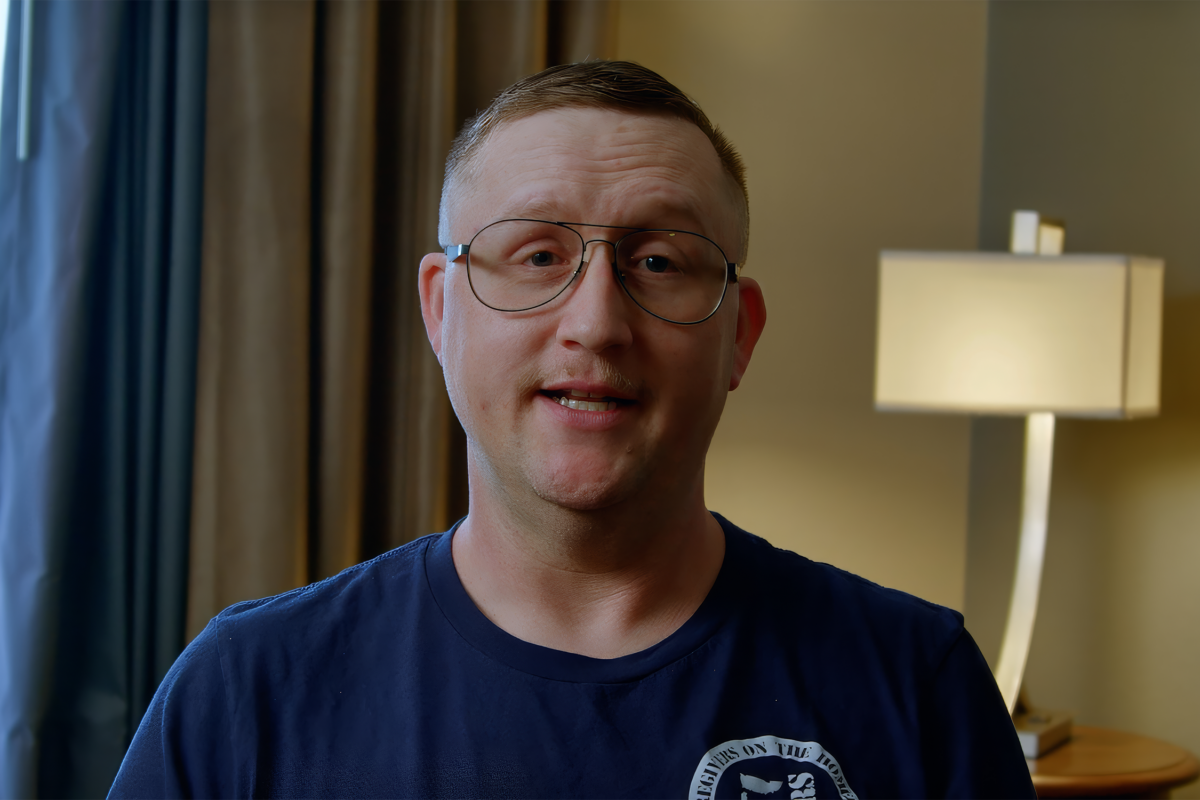
“It’s all I’ve ever done,” he said. He learned to compartmentalize. If something needed doing, he’d get it done. His siblings recognized that and relied on him. By age ten, he told his mom that the only mistake he made was doing the job right the first time, because it became expected of him every time. “That pressure was always there, and it created a distance between me and my siblings.”
The restorative weekends organized by Caregivers on the Homefront allowed Michael to focus on himself for the first time. Though initially unsure about being one of the few male participants, he became involved when a friend sent him an application for a Caregivers on the Homefront retreat. He wasn’t sure it would amount to anything, but he decided to attend when Shawn reached out to him personally.
“I was apprehensive at first, wondering how I would fit in as one of the few men, but when I opened up, I realized I was just like the others,” he explained. “It’s been a powerful experience, and it’s helped me understand that I need to take care of myself, too.”
Michael believed in the impact of restorative healing. He could focus on self-care by attending Caregivers on the Homefront retreats, knowing his wife was well-cared for. He found release through creative activities like leatherworking and writing poetry. These art-based experiences helped him release bottled-up emotions and take his mind off the day-to-day struggles of caregiving.
It is hard, but I truly believe we can come out on top when we use our lived experiences for good. Even in the darkest hours, if we reach out to others we can survive this journey.
Shawn Moore, founding executive director, Caregivers on the Homefront
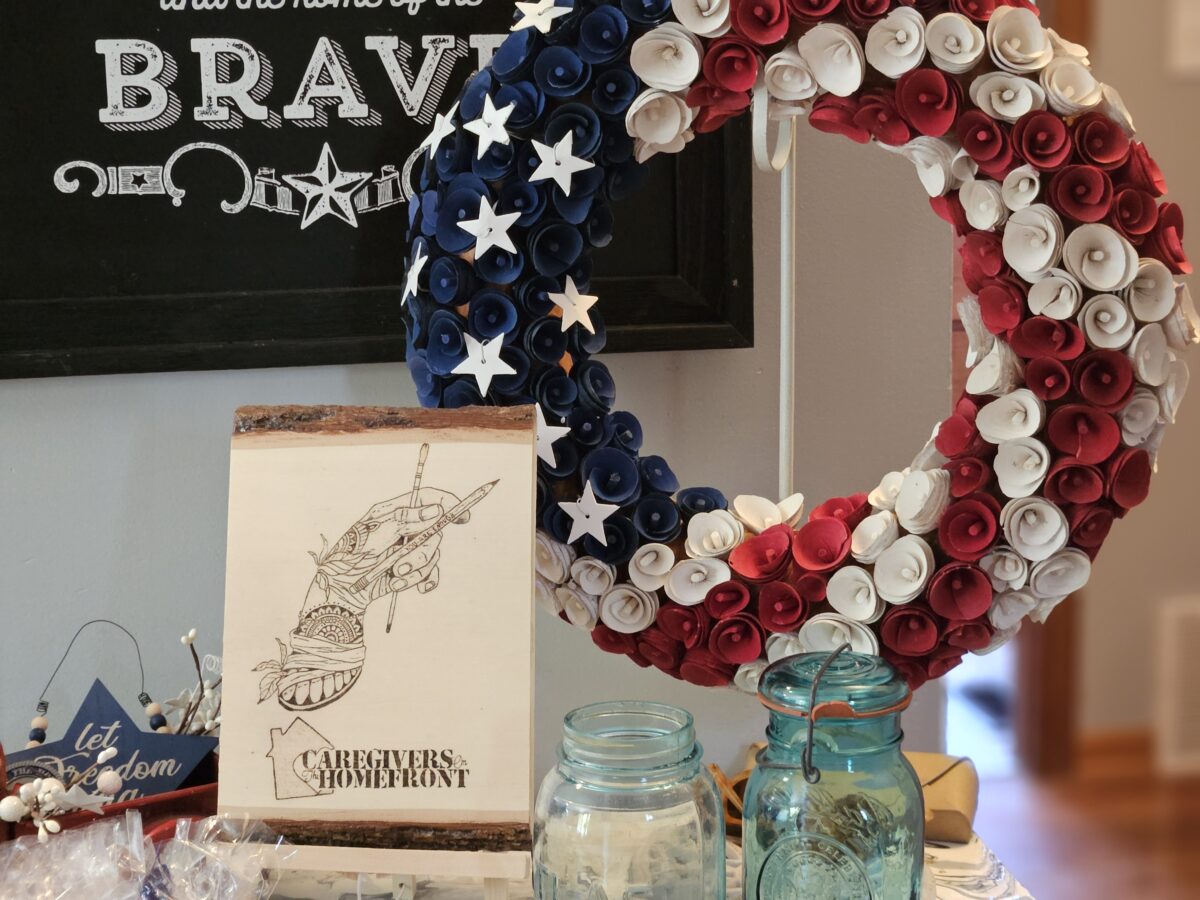
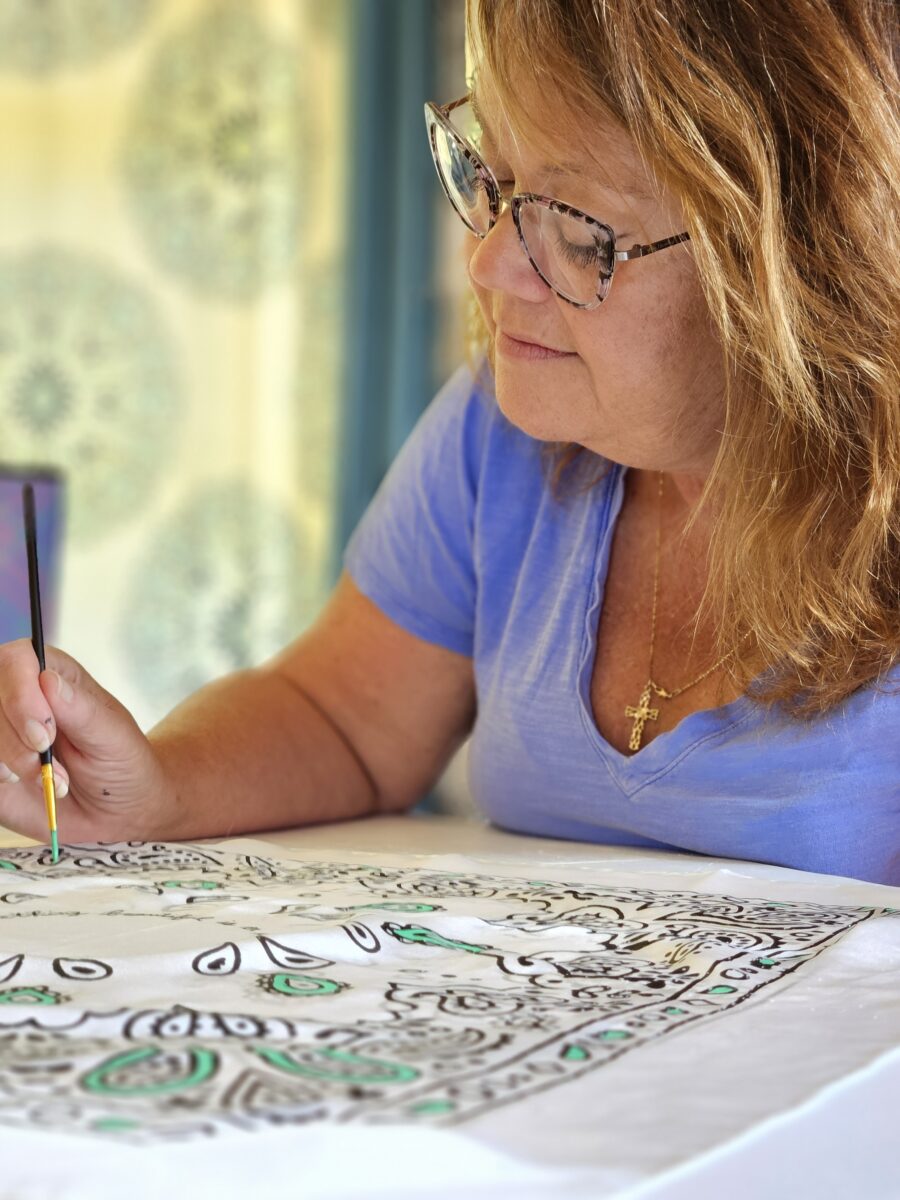
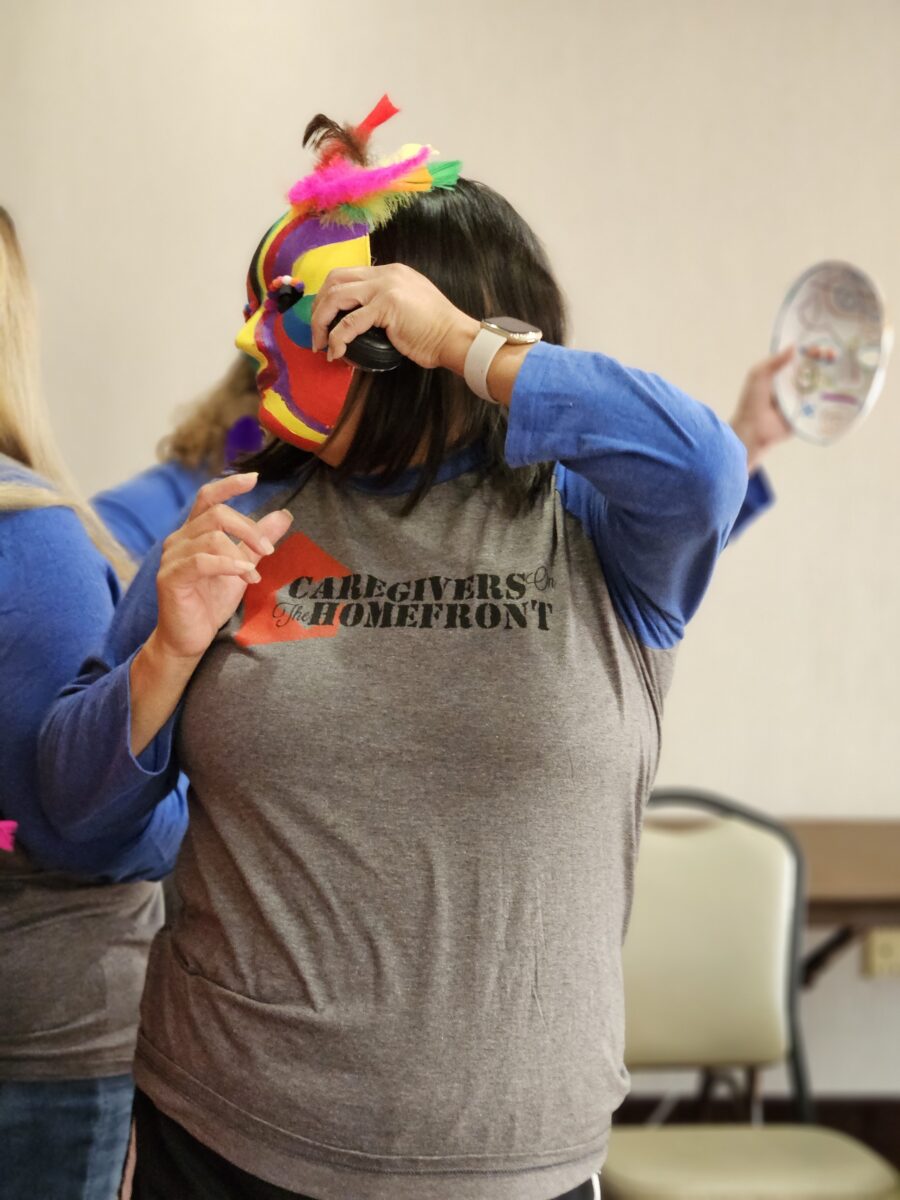
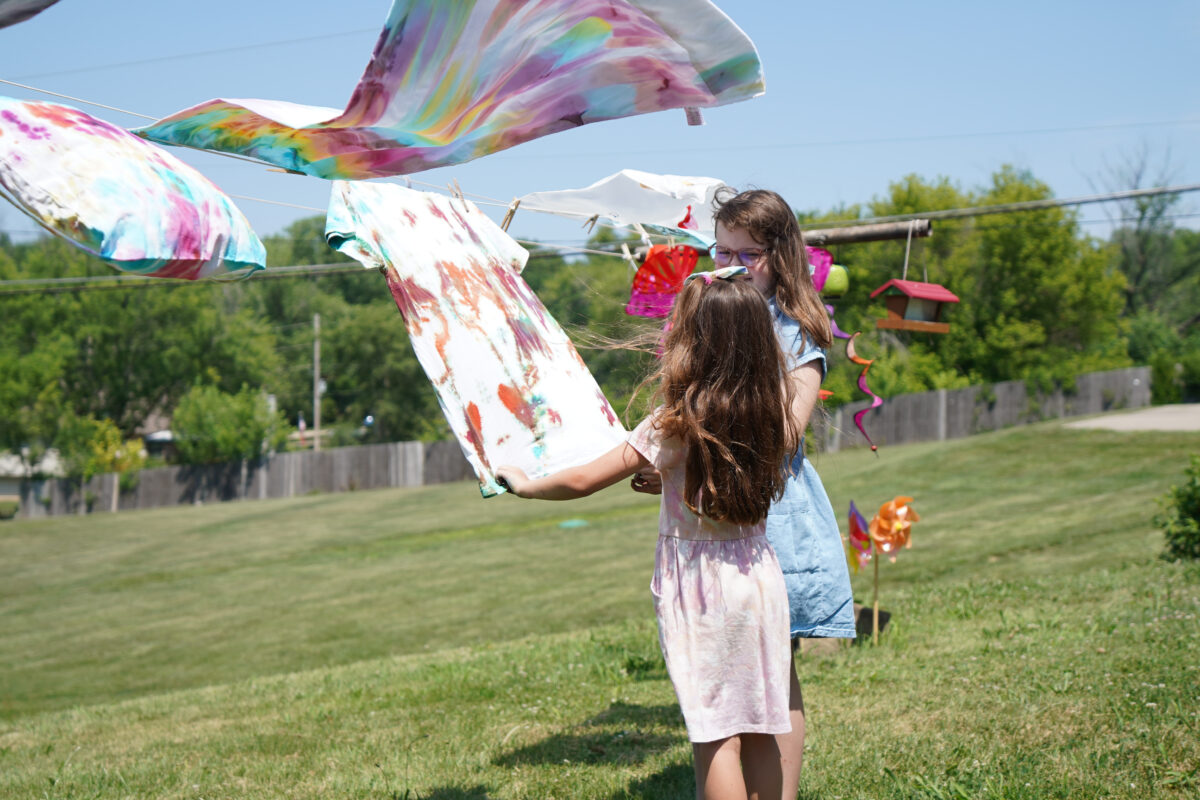
Healing through art and community
Caregivers on the Homefront retreats and workshops went beyond simple respite care. They gave caregivers access to the transformative power of the arts and a community of peers. Their retreats combined mindfulness, meditation, and artistic activities to address serious issues like caregiver burden, secondary PTSD, and isolation. Participants discovered their inner strengths through mask-making, journaling, and other creative pursuits and learned sustainable self-care practices.
The arts offered a way to connect with others, relieve stress, and create something beautiful. Through various art forms, caregivers discovered new ways to express complex feelings that might be difficult to put into words. Local art teachers guided participants through different creative techniques, ensuring everyone can find a form of creative expression that resonated with them. The conversations and connections that developed during creative pursuits provided essential support for caregivers who often felt hidden.
“What I have learned in this short but seemingly long journey is that you cannot do this alone,” said Shawn. “A caregiver never knows what the day may bring. Having a sound support system gives you the courage and strength to keep moving forward. Even if it is one day at a time.”
Going down the caregiving path alone could lead to a downward spiral. Through Caregivers on the Homefront, Shawn helped veteran caregivers connect with others in the same role so they could lean on each other for support.
In Memory of Bryan A. Moore
1970—2024
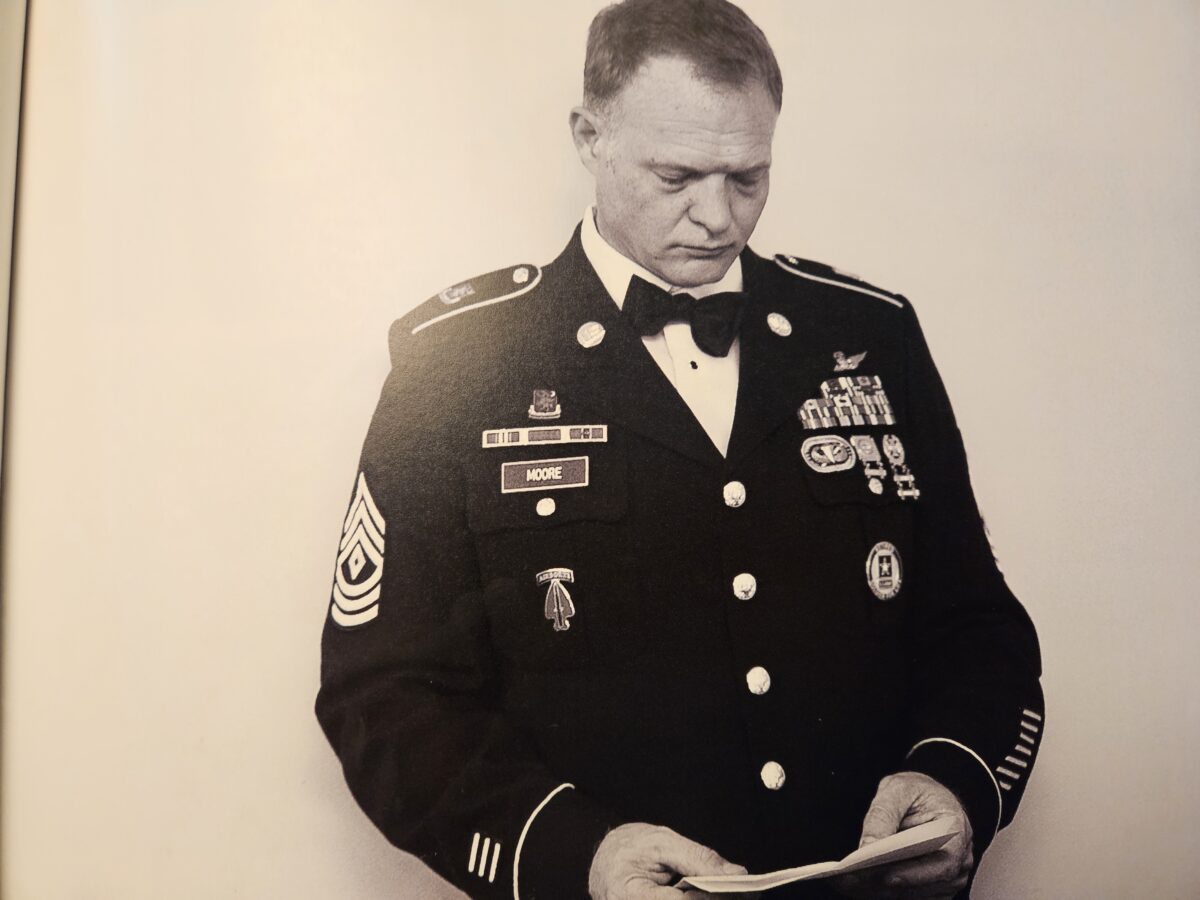
Crisis Hotline
If you or someone you know is struggling or in crisis, help is available. Call or text 988.